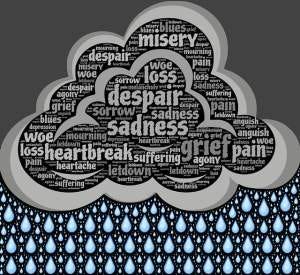By every definition, all of us want to be healthy, both physically and mentally. However, there are benefits to remain ill. Those benefits refer to getting lots of attention. Secondary gain refers to the unintended benefits that an individual may receive from a negative behavior or illness. Such benefits from illness are attention, sympathy, or financial gain. It can often be a subconscious psychological motivator for maintaining the behavior or illness.
Victimization refers to the experience of being harmed, mistreated, or subjected to unfair treatment by others. It involves being the target of abuse, violence, discrimination, or injustice. Victimization can occur in various contexts, such as interpersonal relationships, societal structures, or systemic oppression. It is an objective state of being subjected to harm or mistreatment.
Victimhood refers to an individual's psychological and behavioral response as a victim. It involves adopting a mindset or identity centered around one's Victimization. Individuals in a victimhood mindset view themselves as helpless, powerless, and at the mercy of external forces. They may constantly focus on their past Victimization, seek validation and sympathy from others, and perceive themselves as entitled to special treatment or privileges. Yes, they were victimized, but now it has become a permanent way of thinking. When victimhood becomes a chronic and rigid mindset, it can hinder personal growth, resilience, and the ability to take control of one's life.
Martyrdom describes someone who seems always to be suffering in one way or another. They might always have a story about their latest woe or a sacrifice they’ve made for someone else. They might even exaggerate bad things that happen to get sympathy or make others feel guilty. Most of us know of the stereotypical mother who has a negative reaction when it's time for her son or daughter to either move out of the household or when they announce their engagement and intent to marry. The martyred parent may say, "Sure move out, marry, I'll just suffer alone." Or, " sacrificed my whole life and my health for you and this is how you treat me?"
There is a wonderful old movie entitled "Marty." Ernest Borgnine played the main character. The story is about an Italian man who is a bachelor and lives alone in a house in the Bronx in an Italian neighborhood. Marty works as a butcher and has friends who, just like him, are all bachelors. Saturday nights are spent hanging around doing little. One Friday night, Marty meets a woman who is very similar to him. They make a deep connection, but Marty's friends, mother, and aunt all play victim or martyr to discourage him from continuing to see this woman. At the movie's end, it is as though a revelation occurs, and he awakens to what everyone is doing to dissuade him. In the most romantic way possible, Marty calls the woman, and the audience knows they will marry and live happily ever after. I highly recommend this movie.
It's important to approach these terms with nuance and sensitivity. There are genuine victims of various forms of injustice, abuse, or crime, and their experiences should not be invalidated. However, it's also beneficial to recognize when someone might be adopting a chronic victim mindset that prevents personal growth or accountability.
It is also important to understand if and when someone with a martyr way of thinking is targeting you. Some people can easily feel guilty by the depiction of suffering by someone with a victimhood or martyr way of interacting with others.
Esther Eger, Ph.D. Clinical psychologist and Holocaust survivor says in her autobiography, "The Choice," that victimhood is optional. “There is a difference,” she says, “between victimization and victimhood.” All of us are likely to be victimized at some stage. We will suffer abuse, injury, ill fortune, or failure. We live exposed to forces beyond our control. Victimization comes from the outside. But victimhood comes from the inside.
Eger is emphatic in not blaming the victims—among them her parents. As she says, Victimization comes from the outside, from forces we cannot control. But healing comes when we refuse the self-definition of a victim. There is always a choice. Often, we cannot choose what happens to us, but we can always choose how to react. Events never define us. To allow ourselves to be so defined is to hand sovereignty over our own lives to others.
In the classic 1942 movie "Now Voyager," Charlotte is raised by a cruel and abusive mother and becomes an example of victimhood. Charlotte becomes depressed and hopeless, a shell of a person. However, she breaks away from her cruel mother, sheds victimhood, and moves on to live a full and happy life. She chose to shed life as a victim.
These movies and Dr. Eger's autobiography are positive messages for everyone. Life can be difficult and, for some, more difficult than others. But we can move onward and live full and productive lives.
Remember, to live fully is a choice.






And, to the degree one is able to put this thought to use, every day is a new opportunity to at least begin to climb back to living a more stable life
Very much liked (and connected) with your article. We can remind ourselves every day that we get to choose. And I do!